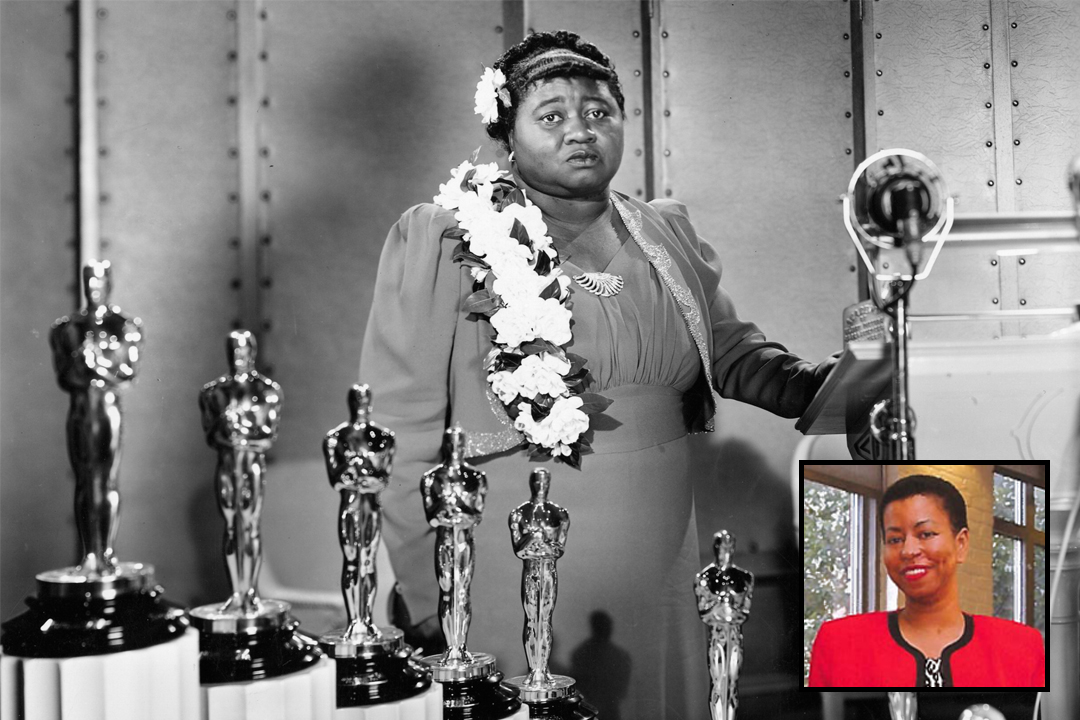This year marks the 90th Anniversary of the "Oscars"–the iconic awards presented by the Academy for Motion Picture Arts and Sciences for excellence in film. GW has played a unique role in documenting Oscar history, and, for that reason, an article by Professor W. Burlette Carter is making headlines once again.
At the 12th Academy Awards in 1940, Hattie McDaniel was the first black person to be awarded an Oscar. She won "Best Supporting Actress" for her role as "Mammy," the O'Hara family's sassy servant, in the 1939 film adaptation of Gone With the Wind. In her final years, Ms. McDaniel willed the Oscar to Howard University. But the Oscar disappeared from Howard in the late 1960s or early 1970s. Professor Carter spent a year investigating the case.
Not many legal research trips involve a visit to the Academy of Motion Picture Arts and Sciences in Hollywood. But the academy was a crucial stop for Professor Carter. There she saw in person, for the first time, an Oscar like the one Hattie McDaniel won. Back then, Best Supporting Actor winners did not receive the familiar tall statue. Instead, they were given a plaque that bore the award title, but not the winner's name. The form of Ms. McDaniel's Oscar may partly explain how later generations misplaced it. Indeed, as Professor Carter's search began, even Howard's own archivists could find no records of having received the Oscar, although many professors and students remembered seeing it in a glass case in Howard's Drama Department.
Professor Carter's research considered papers in the Academy's Margaret Herrick Library, probate papers filed in the Los Angeles courts, archival materials at Howard, and numerous personal interviews. She nailed down that the Oscar did reach Howard and when, and she offers theories about what happened later. Professor Carter also ties the Oscar to the story of how race discrimination and the poverty it caused suppressed the ability of African Americans to leave legacies safely and to pass on wealth to future generations. In Ms. McDaniel's era, with rare exception, white institutions generally did not preserve black legacies. Indeed, at the 1940 Oscar's itself, Ms. McDaniel was forced to sit at a segregated table, away from her white cast members from Gone With the Wind.
For the Oscar's 90th anniversary, numerous media outlets revisited Ms. McDaniel's legacy and Professor Carter's research. What happened to the Oscar? To find out, read Professor Carter's article, "Finding the Oscar," published in the Fall 2011 edition of the Howard Law Journal.


